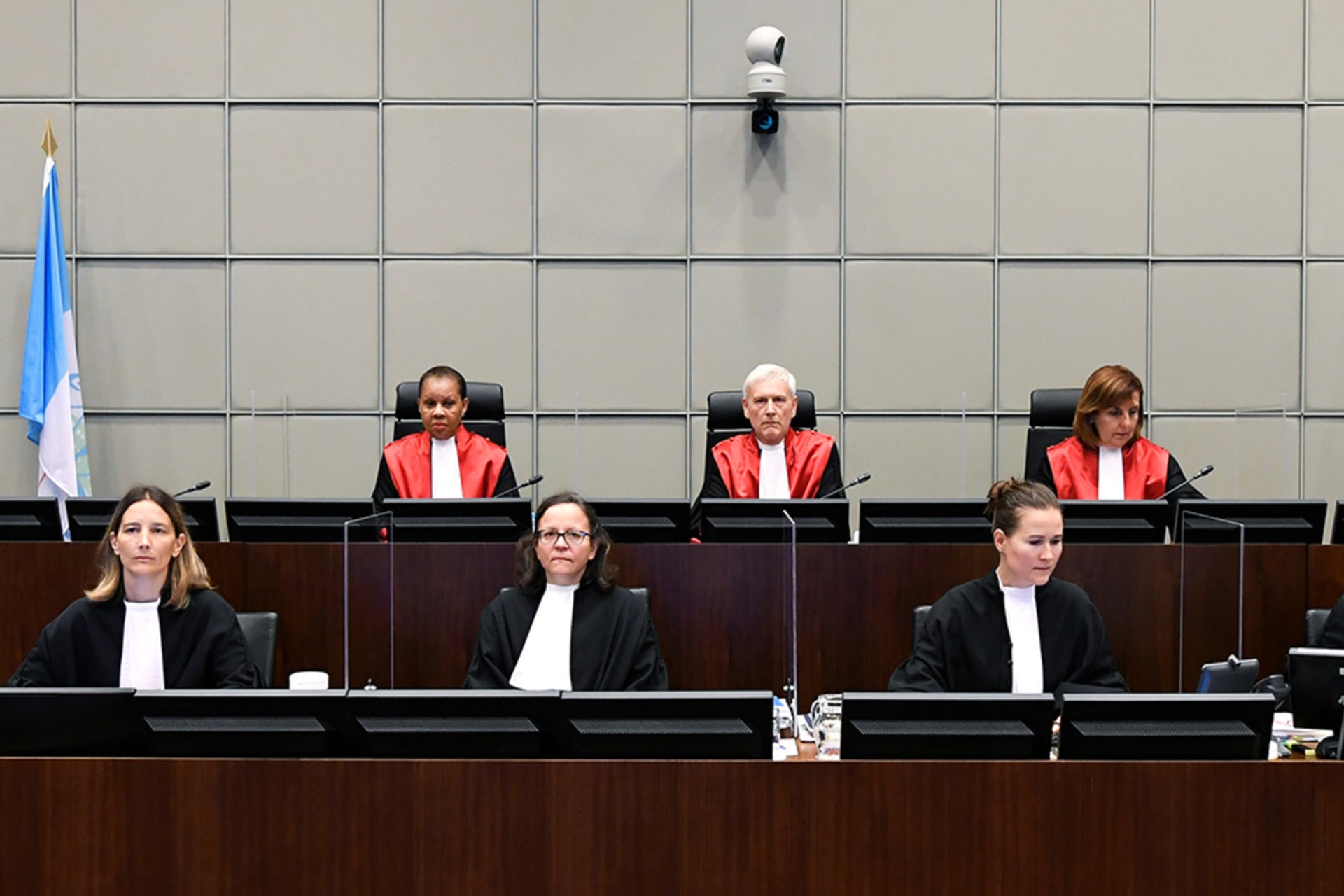Lebanon’s Frustrating Day of Judgment
Fifteen years after the killing of former Prime Minister Rafiq Hariri roiled Lebanese society, the international tribunal’s ruling has left wide open the question of who at high levels was responsible.

In the aftermath of the catastrophic explosion in Beirut earlier this month, a long-awaited judgment about the 2005 assassination of former Lebanese Prime Minister Rafiq Hariri is a judicial reckoning that drills deeply into Lebanon’s fractured politics and likely will influence its survival as a nation. Yet many critical questions remain unanswered, most importantly who ordered the killing. The ruling found no direct evidence of involvement by Syrian or Hezbollah leadership, as had been widely speculated. Ultimately, it was a frustrating day of judgment that leaves Lebanon in the same predicament of political gridlock it has endured for decades.
The Trial and Verdict
The August 18 judgment [PDF] was delivered by the trial chamber of the Special Tribunal for Lebanon, which was established by the United Nations and the Lebanese government in 2009 to render justice for the street bombing that killed Hariri and twenty-one others and injured more than two hundred. On trial since 2014 have been four Lebanese defendants who are supporters of Hezbollah, a Lebanese Shiite Muslim political party and military group designated by the United States as a terrorist organization. Hezbollah shares national power with Christian and Muslim political parties. When he was murdered, Hariri was a leading Sunni Muslim politician seeking to reenter government with a run for parliament.
The defendants were Salim Jamil Ayyash, Hassan Habib Merhi, Hussein Hassan Oneissi, and Assad Hassan Sabra. A fifth defendant, Mustafa Amine Badreddine, died on the battlefield in Syria in 2016. The four living defendants have remained in hiding, shielded by a Hezbollah pledge never to surrender them to the tribunal, so the trial proceeded in absentia and with the participation of defense counsel in accordance with the tribunal’s statute and Lebanese criminal law.
The trial chamber, comprising two international judges and one Lebanese judge, unanimously found Ayyash guilty on all five counts of the indictment, which charged terrorist acts and intentional homicide. But it acquitted Merhi, Oneissi, and Sabra of charges against them, which pertained to a false claim of responsibility that would point investigators in an erroneous direction. Ayyash will be sentenced later, and if he is ever brought into custody, he will be entitled to a retrial. There could be an appeal of the current judgment to the tribunal’s appeals chamber by Ayyash’s defense counsel or by Canadian Prosecutor Norman Farrell.
The entire case rested on circumstantial evidence, and there was no finding of higher responsibility for the crime. So the nagging question of who ordered the assassination remains unanswered. Speculation about high-level Syrian or Hezbollah officials masterminding the assassination of a powerful political opponent remains just that—speculation.
The verdict could deflate Hezbollah’s credibility as a dominant political force in Lebanon given Ayyash’s culpability. But the three acquittals could lessen the ruling’s impact on the body politic over time and breed cynicism about the capacity of even an international court to deliver justice to a weary Lebanese people. The lack of evidence to place any direct or inferred responsibility on an elevated political power in the region—the prosecutor did not seek any such ruling—will leave the common citizen wondering what the billion-dollar tribunal has accomplished.
The Problematic Value of Metadata
The complexities of prosecuting any sophisticated assassination plot are only compounded when the evidence rests not on written instructions, recorded conversations, or witnesses (269 in this case and mostly victims) but on metadata. In Ayyash et al., prosecutors used telecommunications data, namely the usage of several cell phone networks in Lebanon by the defendants and by unidentified individuals over multiple weeks or months prior to the assassination. Prosecutor Farrell produced mountains of such data to try to prove inferentially that patterns of cell phone usage demonstrated that the four defendants were members of conspiracies either to surveil and assassinate Hariri or to fabricate a false claim of responsibility for the crime.
For Ayyash, such evidence marked him as the leader of the so-called Red network, preparing for the attack on Hariri. The colocation of Ayyash with the cell phone data on particular days and hours was strong enough to establish both his weekslong surveillance of Hariri and his final role on the day of the assassination. The identities of the five other members of the Red network, however, were never established by the prosecutor, and the members of the Blue and Yellow cell phones networks, who planned the attack and observed Hariri’s daily movements, were not all identified. The Green network allegedly included the fifth original defendant, Badreddine, who might have been a high-level operative issuing instructions. His actual role will likely remain unknown, given his death years ago.
The acquitted defendants were members of the Purple group, which allegedly tried to redirect the media and investigators toward a young Muslim man, Ahmad Abu Adass. Adass was abducted from his home, videotaped claiming responsibility, and then he disappeared. He is now presumed dead. Even if their participation in such a scheme could be proven, the trial chamber opined that the three defendants need not have known that setting up the false claim was connected to the assassination.
Ultimately, the trial chamber found the telecommunications data “completely circumstantial” and “too remote.” For all the impressive complexities of metadata in a criminal trial, its use as evidence can miss the most fundamental requirements for a conviction. There are no intercepts of actual conversations and little or no proof of who is holding the phone for any particular call. The chamber found no direct evidence to implicate any of the three defendants. Still, the introduction into a courtroom of such a voluminous amount of metadata to dissect a complex act of terrorism was unprecedented and will provide many lessons for future prosecutions.
The Tribunal’s Conclusions
The trial chamber delivered legal and political conclusions that reflect the turmoil in Lebanon:
- The facts established Hariri’s rising opposition to various Syrian and Hezbollah roles in Lebanon and the defendants’ support for Hezbollah.
- While Syria and Hezbollah may have had motives to eliminate Hariri and some of his political allies, there is no evidence that Hezbollah leadership had any involvement in Hariri’s murder and there is no direct evidence of Syrian involvement in it.
- Not all those involved in the surveillance of Hariri necessarily knew they were participating in an assassination conspiracy.
- It is highly probable that those responsible for organizing Hariri’s assassination decided to murder him only if he continued on his foreshadowed path away from Syria.
- A February 2005 audio recording of the Syrian deputy foreign minister and Hariri confirms Hariri’s repeated opposition to Syrian interference in Lebanese affairs.
These conclusions, from a criminal trial that narrowly ruled on the evidence presented to it, provide no roadmap for the restoration of civil order, credible governance, and economic recovery in Lebanon—which the tribunal alone cannot achieve but can possibly influence. However, they are a judicial expression of evidentiary truth (or the lack thereof) that cannot be ignored.
